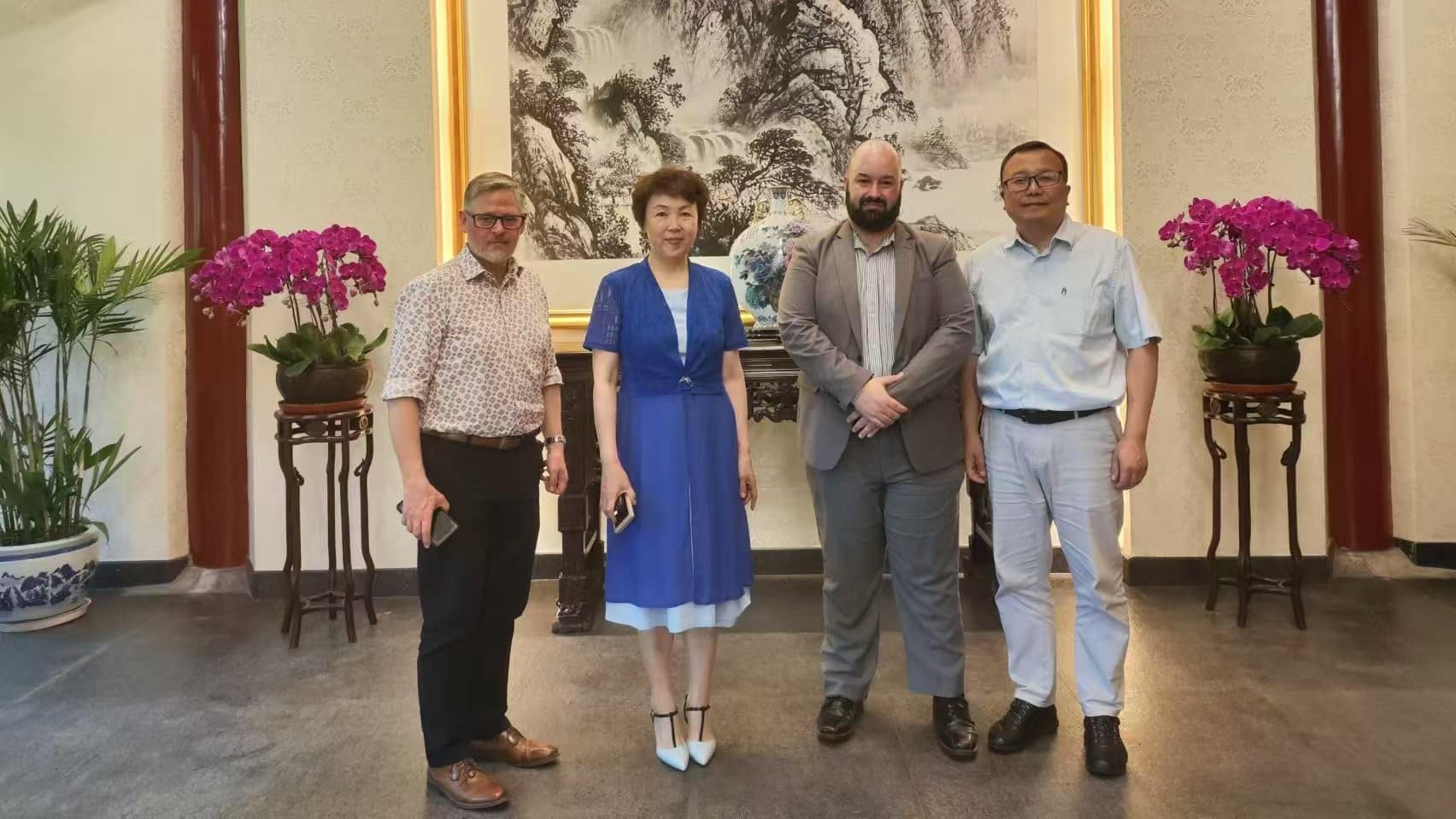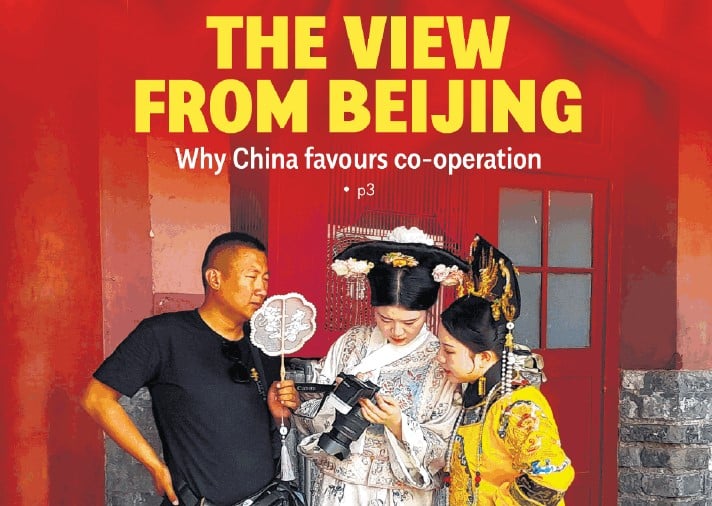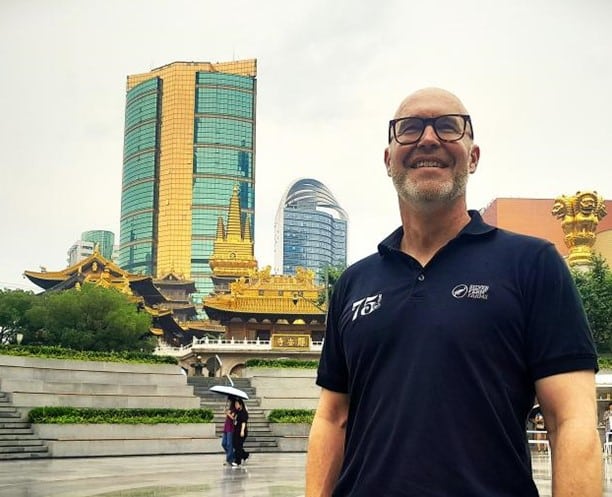“WHAT CHALLENGES DO YOU FACE?”
ADDRESS TO 2019 NEW ZEALAND CHINA YOUTH LEADERSHIP SUMMIT
ST ANDREW’S COLLEGE, CHRISTCHURCH
15 JULY 2019
DAVID PINE, ADVISOR, NZ CHINA COUNCIL
“WHAT CHALLENGES DO YOU FACE?”
Dajia hao, tena koutou katoa
My friend and colleague Stephen Jacobi has told you about what the New Zealand China Council does. And he has told you how delighted we are that you are here.
He also reminded you this morning that the future is in your hands.
So what are the challenges that you will have to face? My crystal ball is pretty hopeless. I can’t see all the questions you will face. Let alone the answers.
But I want to make an argument that is very unfashionable at the moment. I want to try to persuade you that old institutions as uncool as the United Nations and the World Trade Organisation might still be useful to you in addressing the challenges of the future.
The first thing to say is that the challenges you face are going to be quite different for the next generation of leaders for our two countries.
Whatever way you look at things – economically, politically, environmentally, geographically, China will be central to the future of all of us.
And the decisions that Chinese leaders take will inevitably be relevant to everyone else whether they might wish them to be or not,
For New Zealand’s future leaders, on the other hand, the challenge is almost the opposite. How will they ensure that their country remains useful and relevant to the rest of the world?
How will they influence others to see the opportunities and the risks that we see – and work with us in addressing both?
There is no necessary reason why leaders of great countries should listen to small ones. The onus is always on the small country to show its worth and the value of its ideas.
You are inheriting a world that is undergoing major changes.
Politically and economically power is moving from the West to the East. In all stages of history power has ebbed and flowed between different states and regions.
These periods of transition have always been the most difficult to manage. They come with risk of conflict.
Today the relationship between the world’s two great powers: the United States and China has become central to the future of the world.
The management of this relationship, and its peaceful development, will take great wisdom, strength and courage from the leaders of both of those great countries.
And it will take a lot of time and patience.
The future for countries like New Zealand and our neighbours is not to choose one side over the other and hope that that side “wins”.
In the 1930s and the 1940s China and New Zealand fought on the same side in the Second World War.
Although our two countries emerged victorious from that conflict the price of this victory was horrendous.
New Zealand’s future is to act as a responsible friend to any country, its leaders and Governments, that wish to build peace.
We believe we can do this most effectively in a world that’s manages relationships through strong international institutions with rules that have been discussed and agreed, and that are adhered to.
The leaders who emerged from the experience of the Second World War were determined that the world should never again endure such a catastrophe.
China had the honour of being the first country to sign the United Nations Charter. New Zealand was also a founding member.
China is a responsible and constructive member of that crucial organisation. It has, for example, used its veto power less frequently than any other Permanent Member of the United Nations Security Council.
If managing changing political relationships and power balances were all that the world’s leaders had to worry about, those challenges might be difficult enough.
But I am afraid there is a lot more to do than just that.
Your generation faces an unprecedented challenge in continuing to deliver economic prosperity while managing new challenges, the most pressing and important of which is the way our planet is warming.
Perhaps some of you were among the many students who went to Cathedral Square on 15 March to demand more action to address climate change.
You were right to do so.
Making the changes to our economic systems to address the challenge of global warming will take an unprecedented effort from the world’s Governments, its businesses, its universities and all of its citizens.
It will also take higher levels of cooperation between all of the world’s Governments than we have ever seen before.
The gases that are warming our planet do not care where they come from, where they go to, or what damage they do.
I don’t know how this challenge can be addressed except through strong international organisations with the legitimacy that the United Nations brings.
And you have other enormous challenges that are only beginning to emerge.
Here are just two examples.
How will humans harness the power of digital technology without creating institutions – Government and corporations – that have too much power over individual citizens?
In a world in which so much work will be done without the need for human labour, how will future leaders ensure that all of their citizens have the opportunity to participate meaningfully in their economies?
A new economy will require creative, new thinking. And new forms of cooperation. Good luck!
You have probably heard about the Free Trade Agreement that New Zealand and China signed in April of 2008. This was a huge achievement in the relationship between our two countries.
But I would suggest that, as important as that agreement is, China’s membership of the World Trade Organisation is even more important to New Zealand’s interests.
New Zealand played an important role in China’s accession to the World Trade Organisation. We were the first developed country to recognise China’s status as a market economy.
We did not do this simply to be nice to China. We did it because we need a strong, rule-based international organisation for trade.
And that organisation was incomplete without the participation of one of the world’s major economies.
Our generation is leaving massive challenges on your doorstep. I am sorry about that. It is not all our fault. But there is a lot for you to do.
Among the best things that we are leaving to you are the international institutions that have been patiently built since 1945.
Your generation will need to redefine the rules and reinvigorate those institutions so that they meet your needs and address the challenges you face.
Building and maintaining strong institutions is hard – even harder, perhaps, than you might imagine. I promise that any of you who choose careers working in these institutions will experience deep frustration with them sometimes.
But please do not give in to cynicism about our international institutions. Imperfect as these are, the challenges you face cannot be successfully addressed without them.
So take them, renew them and make them your own. They will need to change. But don’t neglect them and let them wither away.
Feichang ganxie.












 MENU
MENU
